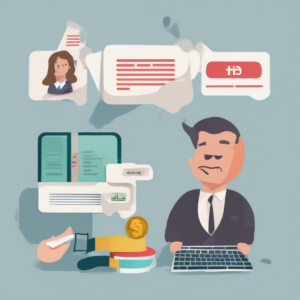Navigating the Maze: A Comprehensive Guide to Debt Relief Companies
Debt relief companies offer a potential lifeline for individuals overwhelmed by mounting debt. However, the industry is complex, and navigating it requires careful consideration and thorough research. This guide aims to provide a comprehensive understanding of debt relief companies, their services, potential benefits and drawbacks, and crucial factors to consider before engaging their services.
Understanding Debt Relief Options
Several debt relief options exist, each with its own set of advantages and disadvantages. Understanding these options is crucial to making an informed decision.
- Debt Consolidation: This involves combining multiple debts into a single loan with a potentially lower interest rate, making repayments more manageable. This is often achieved through a balance transfer credit card or a personal loan.
- Debt Management Plans (DMPs): Offered by credit counseling agencies, DMPs involve negotiating with creditors to reduce interest rates and consolidate payments into a single monthly payment. This requires excellent communication and cooperation from all parties involved.
- Debt Settlement: This involves negotiating with creditors to settle debts for less than the full amount owed. It typically involves making lump-sum payments or structured payments over a shorter period. This can negatively impact credit scores.
- Bankruptcy: A legal process that can eliminate certain debts, but carries significant long-term consequences for credit history and financial stability. It’s a last resort option.
The Role of Debt Relief Companies
Debt relief companies primarily specialize in debt settlement and, sometimes, debt management plans. They act as intermediaries between debtors and creditors, negotiating lower settlement amounts. Their services often involve:
- Negotiating with Creditors: Companies leverage their expertise and volume of clients to negotiate favorable settlement terms with creditors.
- Developing a Payment Plan: They help debtors create a payment plan to settle their debts, often requiring a lump sum payment or structured payments over a defined period.
- Managing Communications: They handle all communications with creditors, reducing the burden on debtors.
- Financial Counseling (Sometimes): Some companies offer financial counseling to help debtors manage their finances and avoid future debt.
Benefits of Using a Debt Relief Company
Debt relief companies can offer several benefits, but it’s crucial to weigh these against the potential drawbacks:
- Reduced Debt Burden: Successfully negotiating settlements can significantly reduce the total amount owed.
- Simplified Payment Process: Dealing with one company simplifies the process of managing multiple debts and creditors.
- Negotiating Expertise: Debt relief companies possess expertise in negotiating with creditors, potentially achieving better terms than individuals could independently.
- Reduced Stress: Handling debt can be incredibly stressful; companies can alleviate some of that burden.
Drawbacks and Risks of Using a Debt Relief Company
While debt relief offers potential advantages, significant drawbacks and risks need careful consideration:
- High Fees: Debt relief companies charge substantial fees, which can eat into the savings achieved through settlement. These fees can be a percentage of the settled amount or a flat fee.
- Negative Impact on Credit Score: Debt settlement negatively impacts credit scores. Late payments and accounts sent to collections significantly damage creditworthiness.
- Potential for Scams: The debt relief industry attracts unscrupulous operators. It’s essential to thoroughly research and vet any company before engaging their services.
- Legal and Ethical Concerns: Some companies employ questionable tactics, such as misleading marketing or aggressive debt collection practices.
- Lengthy Process: Debt settlement can be a protracted process, potentially taking several months or even years to complete.
- Uncertain Outcomes: There’s no guarantee that a debt relief company will achieve a successful settlement. Creditors may not agree to the terms proposed.
Choosing a Reputable Debt Relief Company
Selecting a reputable debt relief company is critical to avoiding scams and ensuring a positive outcome. Consider the following factors:
- Licensing and Accreditation: Check if the company is licensed and accredited by relevant organizations. This provides a degree of regulatory oversight and consumer protection.
- Transparency and Fees: Ensure the company is transparent about its fees and the entire process. Avoid companies that are vague or unwilling to disclose their pricing structure.
- Client Reviews and Testimonials: Research the company’s reputation online. Look for reviews and testimonials from past clients to gauge their experiences.
- Experience and Track Record: Choose a company with a proven track record of successfully negotiating settlements with creditors.
- Avoid Upfront Fees: Reputable companies typically do not require significant upfront payments. Be wary of companies demanding large upfront fees.
- Consult with a Financial Advisor: Before engaging any debt relief company, consult with a qualified financial advisor to explore alternative options and assess the potential impact on your finances.
Alternatives to Debt Relief Companies
Before considering a debt relief company, explore alternative options that may be less costly and less damaging to your credit score:
- Credit Counseling: A credit counseling agency can provide guidance and develop a debt management plan to consolidate payments and negotiate with creditors.
- Balance Transfer Credit Cards: Transferring high-interest debts to a credit card with a lower interest rate can help reduce monthly payments.
- Personal Loan Consolidation: Consolidating multiple debts into a single personal loan can simplify payments and potentially lower the overall interest rate.
- Negotiating Directly with Creditors: Attempting to negotiate directly with creditors can be successful, especially if you have a strong payment history and can demonstrate financial hardship.
Understanding the Legal Implications
Debt relief involves legal considerations. It’s crucial to understand the legal implications of debt settlement and the Fair Debt Collection Practices Act (FDCPA). The FDCPA protects consumers from abusive debt collection practices. Familiarizing yourself with your rights under the FDCPA is essential.
Conclusion (Omitted as per instructions)





